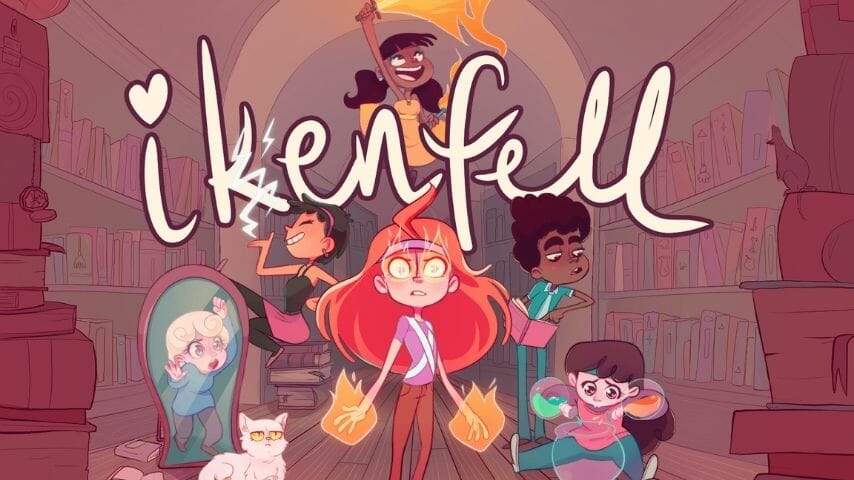Ikenfell Embraces Sincerity in All Its Awkwardness

What I’m about to say might sound harsh, perhaps even radical, but I beg you to bear with me as I bravely say it: preteens are jerks. Brilliant, brave, awkward and endearing jerks. It’s not their fault, it’s generally not intentional, and absolutely all of us smug adults were too, way back when, but regardless, it’s true. They’re critical and self-absorbed, judgmental and stubborn, and even without the raging hormones, it truly all makes perfect sense. This is the age when you have no idea who the hell you are and what space you should occupy as you stumble into whatever hellscape older generations have left for you. Selfishness is by far the quickest means to self-discovery, so I can’t fault a single one of them for embracing the hell out of acting upon their feelings and impulses and judging everyone and everything harshly as they make sense of it all. It’s just necessary.
Preteens are jerks, and usually just a big ol’ pack of bullies. If we’re being honest, though, these tween-age terrors usually bully themselves the most. Preteens, more than any of us, are victims to the construct of “cool,” whether their brand of cool is conventional or part of some counterculture. To adopt “cool” is to abandon sincerity—the trait that allows us to be self-assured and a whole lot less jerk-ish—and walk alongside insecurity, a gluttonous fiend that feeds on validation from everyone who throws it your way other than yourself. Preteens are jerks because society has historically done a shabby job at reminding them sincerity is among the most valuable attributes we can possess. What makes Happy Ray Games’ Ikenfell incredible is how eager it is to prove that.
Ikenfell is the type of game I wish I’d have played when I was 12, and probably would have had it existed then, considering my longtime affection for turn-based tactical RPGs, cute characters, and anything vaguely Harry Potter-ish, may the series rest in peace. I also wish I’d have played it to understand what diversity in media looks like, something games sorely lacked when I was a child. Ikenfell understands sexuality and gender exist on a spectrum, and has characters who fall in vastly different places among them. In addition, it features both racial and body diversity without embracing any harmful stereotypes. But beyond these choices, the most important thing it embraces is sensitivity, a quality adolescent me had an overabundance of despite repeated periods of trying to smush it down.

In Ikenfell, nearly every character is overcoming some mental hurdle. The game understands the issues these fictional folks face are not unlike our own, and does a good job both crafting relatable characters—characters who are neither good nor bad but simply well-intentioned and flawed—as well as reinforcing how debilitating mental illness can be rather than diminishing it. Perhaps the most direct way it does this is by the inclusion of content warnings in the game’s options. Once enabled, the feature issues warnings before any cutscenes depicting self-hatred, trauma, hoarding, anxiety or any other potentially triggering topics. While Ikenfell stays clear of any topics that would push the game beyond family-friendly, it’s clear the developers understand it’s important to treat any sensitive topic with compassion for its players.
It also establishes a point that many stories fumble: there’s no such thing as just “fixing” mental illness. Overcoming your patterns and trauma is not something that is solved through the “power of friendship,” nor is the process linear. Characters grow, find comfort in one another, achieve relatively happy endings, and engage in thoughtful conversations (with the game’s protagonist, Maritte, acting as a shining example of how to be a truly supportive and respectful friend), but all of the characters remain themselves, worries, quirks, baggage and all.
 Keep scrolling for more great stories.
Keep scrolling for more great stories.

